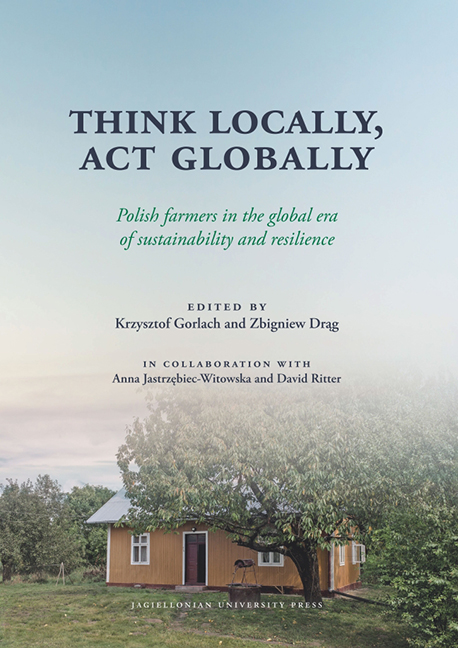Book contents
- Frontmatter
- Contents
- Family Farming: A foreword
- An Introductory Letter from the First Editor: Where the horses, cows, and even cats had their own names
- Part One Theoretical and Methodological Considerations
- Part Two Changes in the Post-Communist Transformation
- Part Three Diversification of Farmers’ Strategies
- Part Four Some Independent Studies
- Conclusion: Some Final Remarks from the First Editor
- Afterword: Renewing a Sociology of Agriculture
- Biograms
Chapter Fifteen - Polish Farmers’ Protest Activities and Mobilization Process: Past and present
Published online by Cambridge University Press: 16 July 2022
- Frontmatter
- Contents
- Family Farming: A foreword
- An Introductory Letter from the First Editor: Where the horses, cows, and even cats had their own names
- Part One Theoretical and Methodological Considerations
- Part Two Changes in the Post-Communist Transformation
- Part Three Diversification of Farmers’ Strategies
- Part Four Some Independent Studies
- Conclusion: Some Final Remarks from the First Editor
- Afterword: Renewing a Sociology of Agriculture
- Biograms
Summary
Introduction
Farmers’ contesting activities and peasant contesting actions that took place in the past have been the subject of interest to many researchers. A significant number of them have concentrated on the role of collective contestant actions in peasant revolts. In their studies these researchers made frequent references to social movement theory. They attempted to find the causes of social upheavals of this kind but were not able to come up with a deeper reflection on their regularity and their patterns. This came from the lack of belief that peasants can become an autonomous social class able to influence modernization processes or even their own social position. This way of thinking about peasants was not only expressed by Karl Marx, who described this social category as “a sack of potatoes” (Marks, 1979, p. 457). Similar views, albeit less radical, were expressed by Theodor Shanin (1971), who argued that the main cause weakening the mobilization potential of peasants is the situation of domination and exploitation that they are subjected to. Another author, Eric Wolf (1973), pointed to the large internal diversification of peasants and their lack of experience in organizing contesting activities as weakening the potential necessary for collective action. It should be remembered that the opinion of Wolf did not stop him from calling the 20th century the time of “peasant wars.”
Modernization was the process which increased peasants’ mobilization abilities and at the same time took peasants out of their own isolated world. It brought some progress in education of this social group, increased the social consciousness of its members, and resulted in emergence of peasant political organizations as well as created the leaders of this circle. Peasants followed the path that Barrington Moore described in these words: “the process of modernization begins with peasant revolutions that fail. It culminates during the twentieth century with peasant revolutions that succeed” (Moore, 1966, p. 453). As a result of the modernization processes, peasants became empowered to take up collective action, not only aiming to change their position or protect their own interests, but also to influence and shape the modernization processes.
- Type
- Chapter
- Information
- Think Locally, Act GloballyPolish farmers in the global era of sustainability and resilience, pp. 641 - 678Publisher: Jagiellonian University PressPrint publication year: 2021



